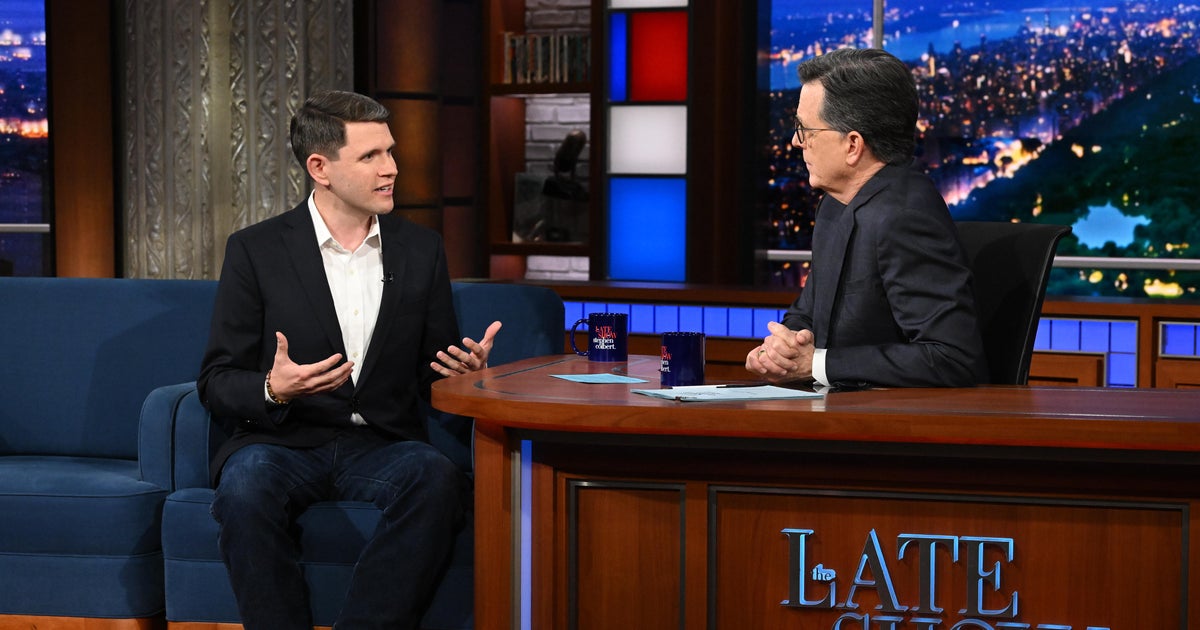Blizzard bans video game star after he supports Hong Kong protests
Activision Blizzard on Tuesday kicked a video game player out of a professional esports tournament after he voiced support for Hong Kong pro-democracy protesters, becoming the latest U.S. business moving to head off potential conflict with the Chinese government.
The Santa Monica, California-based company said it suspended Ng Wai Chung, known in gaming circles as "Blitzchung," from the Hearthstone Grandmaster card game for a year after he shouted "Liberate Hong Kong, revolution of our times" on Sunday during a post-game interview with two Taiwanese online video game show hosts. The pair ducked under their desks during Chung's comments, apparently not wanting to be associated with the slogan used by protesters in the semi-autonomous Chinese city.
Chung donned a face mask, which have been outlawed in Hong Kong in an effort to keep protestors off the streets, in making his statement. In a comment to esports news publication Inven Global, Chung said: "I put so much effort in that social movement in the past few months, that I sometimes couldn't focus on preparing my Grandmaster match."
Chung will forfeit the equivalent of $10,000 in prize money he won in the tournament, he told CBS MoneyWatch.
Blizzard, which is publicly traded and whose other game titles the World of Warcraft, Diablo and Starcraft, is partly owned by Chinese technology giant Tencent. Blizzard said the game's rules allow players to be removed for behavior that offends the public or damages its image or reputation. Blizzard added that the two hosts conducting the interview were also fired.
Blizzard's reaction highlights the fine line U.S. businesses must walk when dealing with the Chinese government. With a population of 1.4 billion people, a rapidly growing middle class and easing economic restrictions, China is highly appealing to U.S. companies looking for growth overseas. But companies must balance the potential for growth with the potential for pitfalls in dealing with a country that aggressively goes after its detractors.
Paul Argenti, professor of corporate communication at Dartmouth's Tuck School of Business, cautions that companies should know what they're getting themselves into when they enter a relationship with a country that's heading into 70 years of communist rule.
"It has a regime that doesn't look like the United States," Argenti said. "We can pretend it is a democracy, but it's not."
Treading on eggshells
After Houston Rockets general manager Daryl Morey over the weekend sent a tweet voicing support for Hong Kong's pro-democracy protesters, the National Basketball Association distanced themselves from the since-deleted tweet in an attempt to limit the financial impact on its Chinese business connections.
Tech giant Tencent and Chinese state television said they wouldn't broadcast Rockets games. The state broadcaster said it's reviewing all cooperation and exchanges with the league.
NBA Commissioner Adam Silver also attempted to defuse the backlash at home, where the NBA was forced to defend its reputation as a progressive company, often allowing its athletes to speak out on controversial issues.
"Everyone — states and companies — seem to accept that they have to tread on eggshells when it comes to China for fear of offending them and being punished," Jonathan Sullivan, director of China programs at the University of Nottingham's Asia Research Institute, said in an email. "And they have to contort themselves to do that."
In August, the CEO of Cathay Pacific Airways resigned following pressure by Beijing on the Hong Kong carrier over participation by some of its employees in anti-government protests.
In 2018, Gap pulled a shirt with a map of China that did not include Taiwan, a self-ruled island that Beijing regards as Chinese territory, and apologized. Delta Air Lines, hotel operator Marriott and fashion brand Zara have all apologized to China for referring to Taiwan, Hong Kong or Tibet as countries on websites or promotional material.
And Mercedes-Benz apologized for quoting the Tibetan spiritual leader, the Dalai Lama, in a social media post.
South Park censored
"South Park" creators Trey Parker and Matt Stone were also targeted by the Chinese government after an episode of the satirical cartoon last week lampooned self-censorship by Hollywood studios to gain access to China's vast consumer market. The show was quickly scrubbed from the Chinese internet.
A check of the popular video-streaming sites Youku and Bilibili turned up zero mentions of "South Park." A search on the search engine Baidu did pull up mentions of "South Park," but some results were removed.
Parker and Stone issued a fake apology after the program was removed in China, saying, "Like the NBA, we welcome the Chinese censors into our homes and into our hearts. We too love money more than freedom and democracy."



